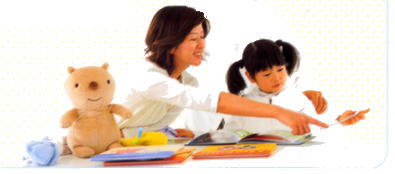
Hello,
Lots of people are wanting to start up their own schools this time of year.
Last time we had “How to teach English to Adults” ( I hope you loved the ninja tips!)
This time it’s the other end of the scale with …
============================
How do I teach English to babies or 2 and 3 year olds
============================
The trick with very young kids is to identify the point where they start physically talking.
This is the big threshold where you have to change how you teach.
As, obviously, before they can physically talk there’s no point doing talking games and activities if they can’t actually do them! 🙂
So up to around 2 and a half years old the main focus should be on input stages.
A few top ideas are:
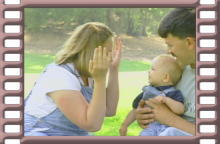
* Playing like they usually do, but in English.
* Nursery rhymes etc. especially if there are actions, movements the parents can do with them e.g. “This little piggy went to market.”
* Reading picture books together.
A few things to avoid are:
* Drilling of flashcards
* Putting them too long in front of a TV (or iPad!) screen
(Both of these have been shown to be ineffective, or even dangerous.)
And, if you can, get the parents involved.
(Ninja Tip: Do separate lessons for the parents on how they can help their kids. Cover things like always having positive attitude, that it’s best to leave pronunciation to real speakers (or materials) but still for the parents to be seen trying and smiling etc. As the kids will distract the parents in these workshops, do it as a yearly special event with you teaching the parents in one room and an assistant playing with the kids in a separate room!)
Also, even though the kids can’t speak, it’s always good to try and get responses to the English they hear.
The Next level …
If you really want to take things to the next level you might want to get certified in something such as Baby Massage, Baby Yoga or Baby Sign Language ( I have one song for this!)
It’s an extra string to your bow, and the fact that you do it in English puts you *way* above all your competition.
Remember it’s not just English that is vying for the parents time.
(Ninja Tip: Sometimes parents will just want to see you as a cheap child minding service. Make sure you decide beforehand whether you will allow this or not and set your prices and policy accordingly. You can always “fire” students later but it’s always better for everyone to be on the same page before you start.)
As usual, confidence, positivity, bright colours, movement and sound help bring the lessons to life.
Solid Structures
Time structure is also really important in this age group.
Check out how kids’ TV shows always follow the exact same pattern, with different cues leading to each section.
Adding in “quiet time” or “stretching time” helps the lessons flow.
And whilst singing the same songs every lesson isn’t a good use of time in older classes, here it can be very beneficial in transitioning the different parts of the lesson.
Setting up a clear schedule like this saves your sanity, your energy and avoids the concentration problems of having to change things regularly as everyone already knows what is coming next.
From 3 and up ….
And once the kids start talking around 2 and a half, or certainly when they are 3 years old, just go with the regular Genki English curriculum.
Just be warned though, kids at this age whiz through Genki English even faster than the older kids!
Be genki,
Richard
P.S. No sooner had I written this post than lots of teachers wrote in to say how wrong I was! Check out their comments here!
P.P.S. We used to always cut out the conceptually difficult themes from the 3 to 5 year old classes (e.g. time, left & right, months etc.) But we found that with the Genki English lesson plans, especially the songs, the kids actually learnt these concepts quicker in English than they did in their mother tongue. Needless to say the parents were very impressed so do leave them in!
P.P.P.S. Here are the other 12 top tips to start your school.
P.P.P.P.S. A few people have asked about my Kids English series. That course is aimed at children from zero years old, but …. it’s really designed for parents to use at home and probably isn’t the best investment for a teacher. If you already speak English 🙂 it’s probably best to stick to the regular Teacher’s Set you already have!

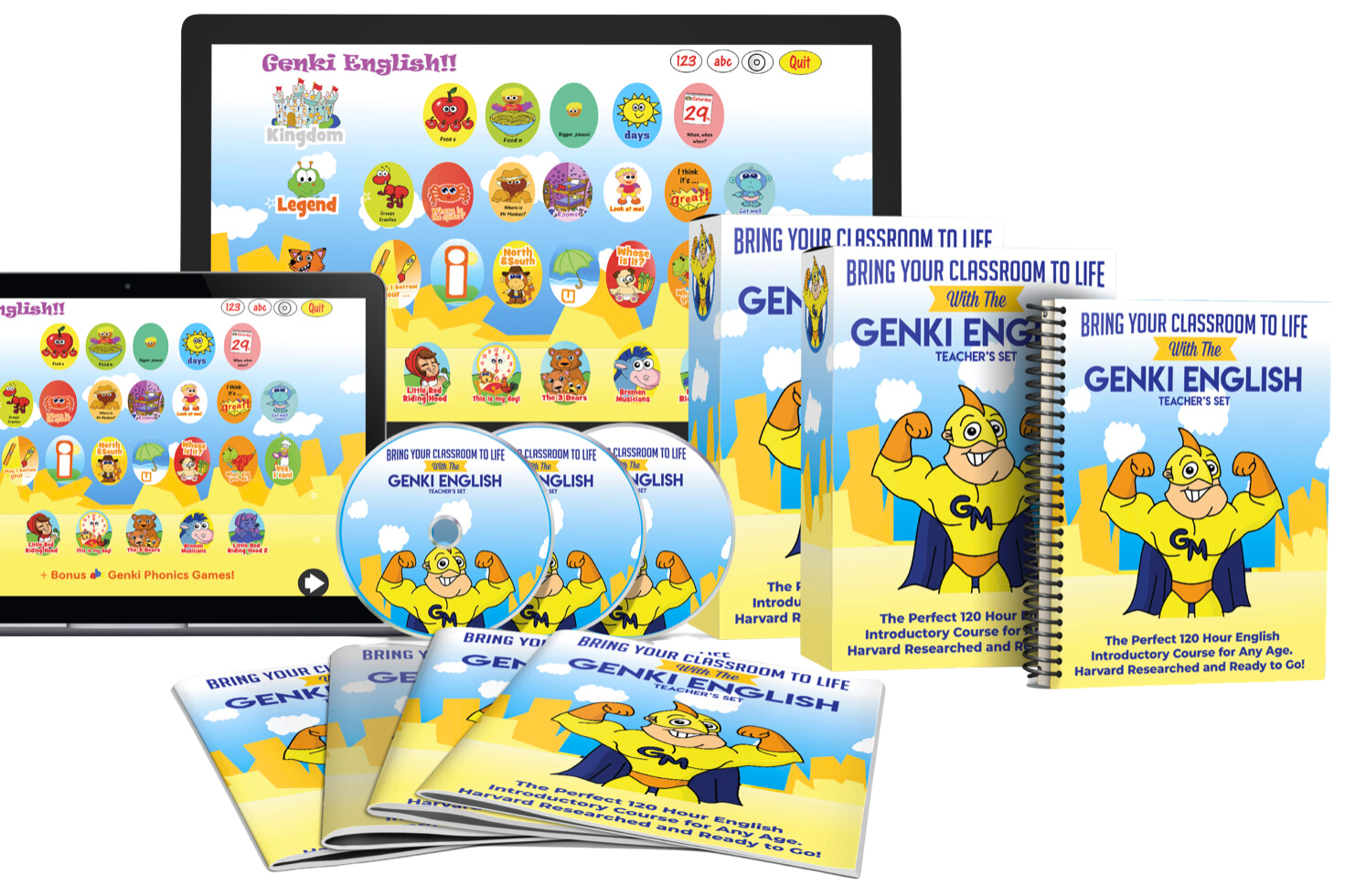
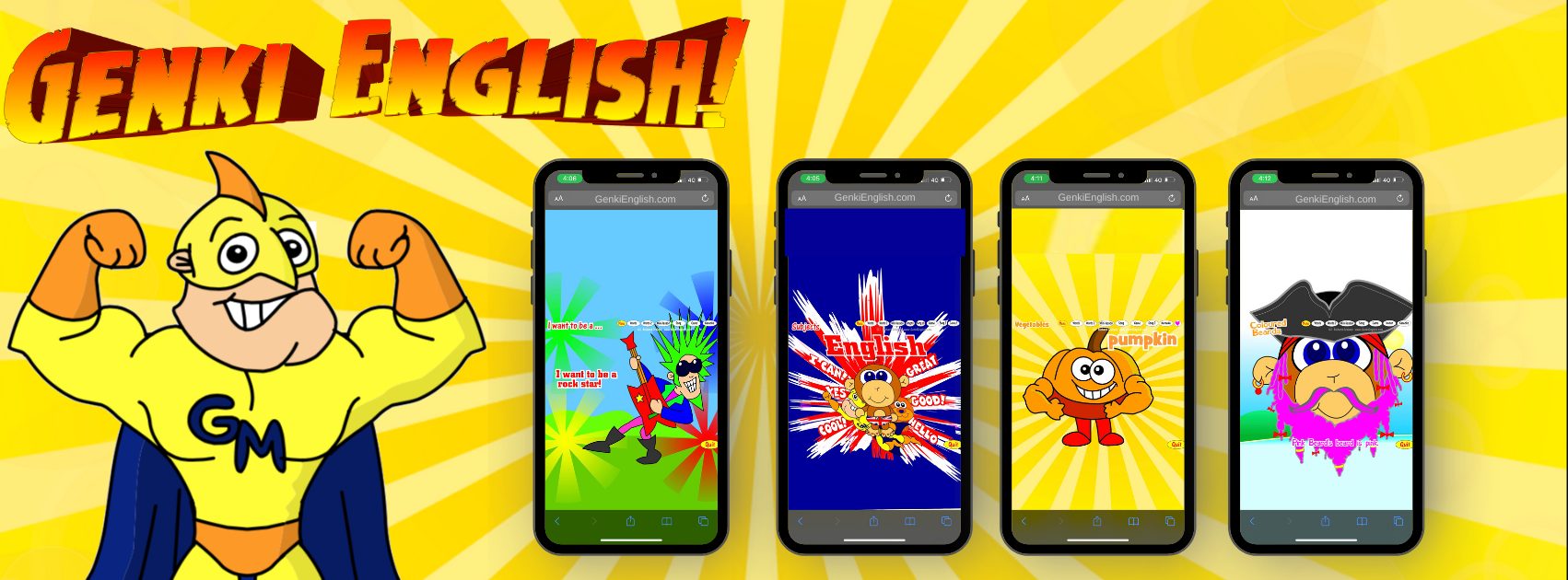
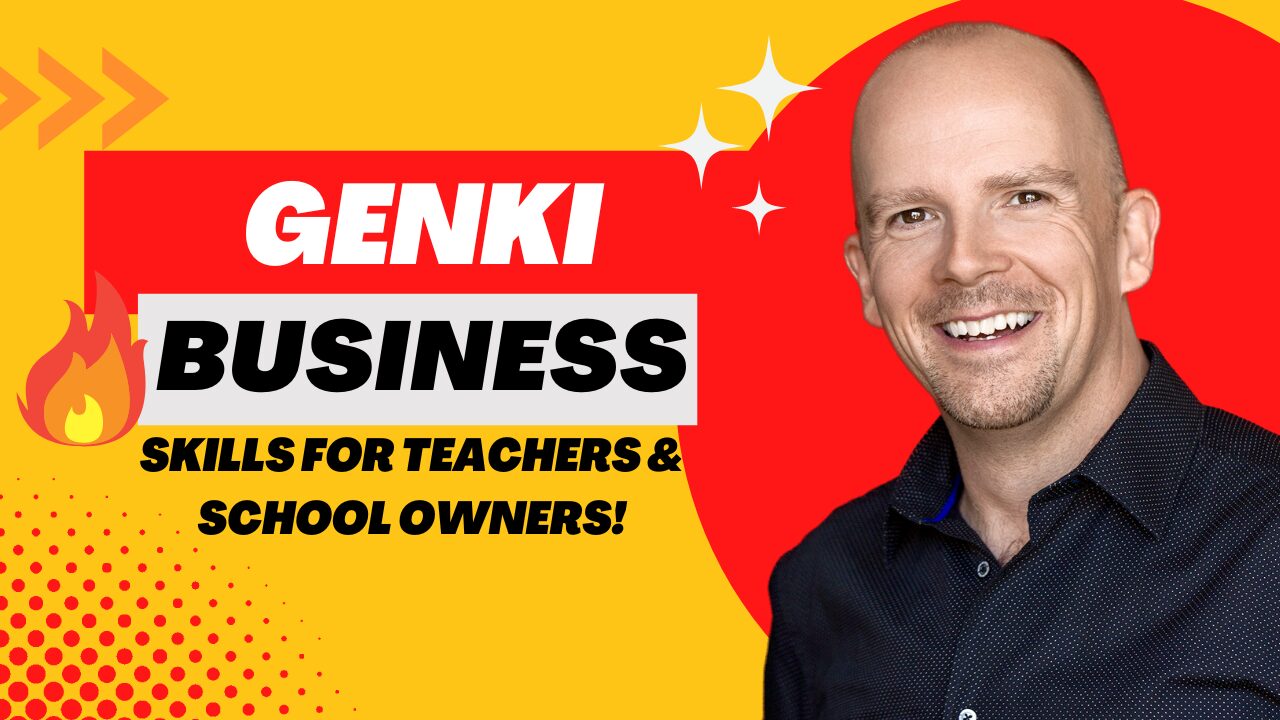
You make heaps of great points Richard! When I first started teaching kids from 0-2 at a kids English school, I thought that it was a waste of time. One thing that surprised me when teaching children who could not even speak yet, was that when they actually started to speak, their language acquisition was faster when compared with kids who had waited until they spoke before they first learnt English. So my thinking has totally changed. At this time of development, it is all about reception, not production, so designing a lesson plan that focuses on this is essential. Actually, this is still how my Japanese is today (mostly receptive, my production of Japanese is terrible 🙂 )
How timely! So many of my students got a baby brother/sister this past half year, that actually yesterday I thought of exactly this!
I’d love to gather a few mothers and babies for class.
I’m not thinking too much of English only, but I think the way Japanese people deal with babies is so different and they could relax so much more knowing there are different ways.
For example having the baby lie on a mat naked for a while when changing diapers~something almost scary for most Japanese mothers as the kid could catch a cold, pee or maybe even get a weird attitude towards being naked.
So, there is so much less skin ship and tickling and kissing~which I bet every mother’s instinct would love to do.
And I bet that if we’d say, “Let’s do it in English” some “round and around walked the little bear…” etc, they would love it.
Well, I’ll see wether I can fit it in somewhere, maybe even just once in a while. This timely post can’t be ignored!
Thanks.
Do you do songs like the ‘Where are you from?’ song with 3 and ups? I think that one would be really hard for that age group.
Thank you for the tips, very useful. I used to teach 2 and half years olds in specialized kindergarten, of course I had to follow their requirements and there was a lot of “drilling of flashcards”. But when I used your tips, the class were more lively with kindergarten and primary kids as well.
Also wanna say (wanted to say long time ago), I often use the free lesson “Hello,how are you” to give demo class. It always gets me a job.
Your method gets the kids easily, they remember better and they love to do it again and again. Just one example:
I taught in a primary school last year (in China), at the first class I taught them the “Hello, how are you” lesson. One grade 4 class, every time when we had lesson they started to sing the song by themselves in the beginning of each lesson. It went on for 2 months. At every school, kindergarten and language centre were I worked so far, my kids learnt “Fine, thank you. And you?” is not always – not the best either – the answer for “How are you?” They learnt they can really tell how they are.
Thank you Richard.
Hi Adam,
Interesting with the “Where are you from?” song. The tune is dead easy, the bright colours in the pictures grab their attention and of course most kindergartens are littered with pictures of flags all over. I guess the real question is do we really want to teach the kids such an outdated concept as countries in the globalised world they’ll now live in!
Hi Beatrix,
Thank you so much for the nice words and it always so nice to hear stories like this. Well done and thank you!
I think this line is going to get the attention of many a teacher too! 🙂
Richard,
Hello How are You is hit song.
Funny answer about the countries. Unfortunately, those borders just don’t seem to be melting away. I think I will still try to start off with songs about actions and stuff that I can use a lot of realia first though.
Thanks.
I don’t know, where you are writing this from? Where am I writing it? And where is everyone reading it from? Outside politics, I’d say the borders are pretty much gone! 😉
Good luck with the material, but don’t be afraid to try the more abstract things, we always impose our own limits on what the kids can do, when in reality they can always learn way more than we every imagine!
Dear Richard,
I assume these tips fit bigger groups. What about one-on-one? I teach one 4 and one 5-year-old and they just don’t focus. They want to listen to many songs during one lesson but are not interested in going through the lesson plan. Is it me, who isn’t able to gain their interest or is it because these are one-on-one? I also have older one-on-one kids and no problems with them, they’re very genki 🙂
Yes, one on one can be the toughest basically because they have no-one to practice with!
Unless the kids have a really clear goal (e.g. getting into a school, going abroad) I’d always recommend group lessons.
Having said that, quite a lot of teachers do have success with Genki English and one on one lessons:
http://genkienglish.net/teaching/one-on-one-lesson-success-shy-kids/
http://genkienglish.net/teaching/one-on-one-individual-esl-efl-lessons/
Totally agree with kids learning days of the week, months in English with GenkiEnglish than in their mother tongue. 🙂
Hi genki english! I want to teach myson 3 years old english? Which materials are suitable? Thanks
For 3 years old the Teacher’s Set is the way to go – it works even better at home!
http://genkienglish.net/downloadpack.htm